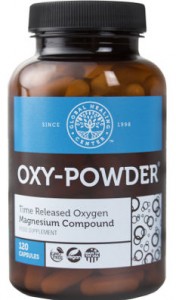Oxygen. We all know what it is, right? One of the first elements on the periodic table and represented there by the letter ‘O’. The one-part to hydrogen’s two that, together, make up water. And, maybe most important to us and all living things on this planet, the air-bound, colourless, odourless gas that we breathe in and without which we can’t survive. But why is that? Why can’t we live without oxygen? Just why is it so important to us? And what happens – and what can we do – when we don’t get enough of it?
Aerobic and cellular respiration
As many are aware, via the act of breathing (respiration) the body takes in oxygen and releases waste gas from its lungs, namely carbon dioxide. This is what’s specifically referred to as aerobic respiration; that’s to say, it refers specifically to the breathing in and consumption of oxygen to help create energy in the body to feed our cells. How does this happen? Well, as the air you’ve breathed in reaches your lungs, it makes its way into their microscopic air sacs (alveoli) and, from there, the oxygen slips through their shallow walls and passes into the bloodstream1, through which it’s transported to the body’s millions of different cells where it plays its critical role in the process of converting vitamins and nutrients into energy (referred to as cellular respiration)2,3. And it’s from this process that, along with water, the body creates CO2 as a by-product.
Oxygen health and deprivation
Now, obviously, the higher the oxygen content in the body, the higher the rate of activity its cells can perform at. So when the body takes in more oxygen, the more hydrated it becomes and the better it can function. And, naturally, the healthier it is too4. For instance, using a study conducted on laboratory mice as an example, a group of these mice were proved, by receiving supplemental oxygen, to have developed better immune function, a higher count of T cells (a type of white blood cells that play an important role in immunity) and actually lived around twice as long as a comparative group that had received normal levels of oxygen5.
So much for high levels of oxygen intake, but what if you’re not getting adequate oxygen in the first place? Well, under that scenario, suffering health problems are pretty much guaranteed6. In fact, maybe one of the unexpected truths of oxygen deprivation is it doesn’t just occur suddenly (in the manner of choking or drowning), but can also occur over the long-term; say, months or even years. How so? A common cause is that levels of poor quality indoor air7 and outside air pollution (carbon monoxide, sulphur dioxide and ground-level ozone) are ever rising8.
Oxygen cleansing
Finally, you may not know it, but there’s another – far less well known – way oxygen can do your body a lot of good. That is, helping to cleanse your body of impurities, not least those present in the colon. These impurities get into our bodies via the water and fluids we drink, the foods we eat and often too the different environments we live in – so, yes, via the air we breathe. But the inherent goodness of oxygen (its natural health-supporting and cleansing abilities) does a terrific job in combining with our bodies’ in-built self-healing mechanisms, ensuring impurities, blockages and the like can be removed.
Indeed, a product formulated with soothing oxygen that’s achieved great results for people by gently cleansing and detoxifying their digestive tracts is Oxy-Powder (120 capsules). It’s one of the major oxygen cleansing products on the market and is available through The Finchley Clinic – and needless to say, we highly recommend it. Other colon-cleansing products we sell that leverage the power of oxygen include both Mag 07 Oxygen Colon Cleanse (a fast-acting, vegan-friendly digestive-system-cleanser and supplement that’s designed to release oxygen over a 12-hour period; available in 180 capsules, 120 capsules, 90 capsules and as a powder) and Colosan powder (a magnesium based colon-cleansing product that oxygenates the bowels at the same time).
References:
1 National Heart, Lung and Blood Institute. ‘What Happens When You Breathe?’ U.S. Department of Health & Human Services, 17 July 2012. Web. 29 Feb. 2016.
2 Alberts B., Johnson A., Lewis J. et al. ‘How Cells Obtain Energy from Food’. Molecular Biology of the Cell. 4th edition. New York: Garland Science; 2002.
3 Hyperphysics. phy. ‘Cellular Respiration’. Hyperphysics, n.d. Web. 22 Feb. 2016.
4 Nhlbi. nih. ‘What Is Oxygen Therapy?’ National Heart, Lung and Blood Institute, 24 Feb. 2012. Web. 22 Feb. 2016.
5 Hatfield S. M. et al. ‘Immunological mechanisms of the antitumor effects of supplemental oxygenation’. Science Translational Medicine. Vol. 7, March 4, 2015, p. 277 ra30. doi: 10.1126/ scitranslmed. aaa1260.
6 LaValle, J. B., and Lundin, S. Yale. ‘Cracking the Metabolic Code: 9 Keys to Optimal Health’. North Bergen, NJ: Basic Health Publications, 2004.
7 Environmental Protection Agency. ‘Factors Affecting Indoor Air Quality’. (n.d.): 5-12. EPA.gov. Environmental Protection Agency, Aug. 2014. Web. 29 Feb. 2016.
8 AirNow. ‘Air Quality Index (AQI) Basics’. AirNow.gov, 28 Jan. 2016. Web. 29 Feb. 2016.

